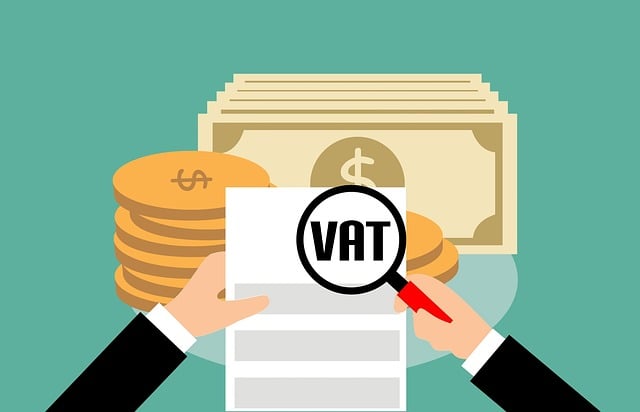Effective financial health hinges on a multifaceted approach to wealth management, with proactive tax optimization being a pivotal component. This article delves into the intricacies of preserving wealth through strategic tax planning, particularly for entrepreneurs and small businesses. By tapping into tax benefits tailored for entrepreneurs and employing year-end tax planning techniques, individuals can significantly reduce their income tax liabilities. Additionally, maximizing tax deductions is crucial for small businesses to not only increase profitability but also streamline compliance. For those navigating retirement, understanding tax-deferred investments is key to robust retirement tax planning. Furthermore, implementing tax minimization techniques, including savvy capital gains management, is essential for safeguarding long-term financial stability. This comprehensive guide will provide actionable insights into leveraging these strategies to enhance your financial outlook.
- Leveraging Tax Benefits for Entrepreneurs: Strategies for Year-End Tax Planning and Beyond
- Maximizing Deductions: Tips for Small Businesses to Enhance Profitability and Compliance
- Navigating Retirement Tax Planning: Utilizing Tax-Deferred Investments for Wealth Preservation
Leveraging Tax Benefits for Entrepreneurs: Strategies for Year-End Tax Planning and Beyond

Entrepreneurs have a unique opportunity to leverage tax benefits strategically throughout the year and particularly at year-end to enhance their financial health. By carefully planning and executing tax-deferred investments, such as retirement accounts or certain types of insurance policies, entrepreneurs can defer income taxes until a later date when they might be in a lower tax bracket. This proactive approach not only optimizes cash flow but also allows for the compounded growth of savings and investments. Additionally, it’s crucial for business owners to stay informed about changes in tax laws that may affect their financial planning. Maximizing tax deductions, particularly those related to business expenses, is a cornerstone of year-end tax planning. Entrepreneurs should review all allowable deductions, including equipment purchases, employee benefits, and home office expenses, to ensure they are fully utilizing the available deductions to reduce their taxable income.
Moreover, retirement tax planning is an often-overlooked area where entrepreneurs can benefit significantly. By contributing to tax-advantaged retirement accounts such as SEP IRAs, SIMPLE plans, or solo 401(k)s, business owners can set aside funds for their future while gaining immediate tax benefits. These contributions can be substantial, often far exceeding the limits of traditional IRA accounts. Beyond year-end, entrepreneurs should consider a variety of tax minimization techniques throughout the year, including timing income and expenses to fall into lower tax brackets and utilizing tax credits that are available for businesses. By staying vigilant and adaptable with their financial planning, entrepreneurs can not only preserve wealth but also position themselves for long-term success and stability.
Maximizing Deductions: Tips for Small Businesses to Enhance Profitability and Compliance

For small businesses, the pursuit of tax benefits for entrepreneurs is a strategic endeavor that can significantly enhance profitability and ensure regulatory compliance. A prudent approach to year-end tax planning is indispensable in this regard. By meticulously organizing financial records and understanding allowable deductions, businesses can optimize their tax liabilities. Maximizing tax deductions involves identifying all potential write-offs, including startup costs, business expenses, and the acquisition of tax-deferred investments. These deductions not only reduce the current tax burden but also contribute to a more robust financial position. Entrepreneurs should engage with knowledgeable tax professionals who can guide them through the intricacies of the tax code and uncover opportunities for reduction. For instance, contributing to retirement plans like SEP IRAs or SIMPLE Plans can offer substantial tax minimization techniques, as these contributions often yield immediate tax benefits. Additionally, utilizing health savings accounts (HSAs) for medical expenses can further lessen taxable income. By planning ahead and leveraging tax-advantaged investment vehicles, small businesses can secure their financial health while navigating the complexities of tax laws. Retirement tax planning, in particular, should be a priority, as strategic decisions made today can have a lasting impact on tomorrow’s tax position.
Navigating Retirement Tax Planning: Utilizing Tax-Deferred Investments for Wealth Preservation

Navigating retirement tax planning is a critical component for entrepreneurs seeking to maximize their financial security and capitalize on tax benefits. By engaging in tax-deferred investments, individuals can postpone taxes on investment gains or income until a later date when they might be in a lower tax bracket, thereby enhancing wealth preservation. These strategies are particularly beneficial within retirement accounts like 401(k)s and IRAs where contributions and growth can compound tax-free until withdrawal, often during retirement years when one’s income—and corresponding tax rate—may be lower. Entrepreneurs should take advantage of year-end tax planning to make the most of these tax-advantaged accounts, ensuring they contribute up to the allowable limits to minimize taxes both now and in the future. Furthermore, understanding and leveraging the full range of tax minimization techniques available is essential for optimizing retirement savings. This includes converting traditional IRAs to Roth IRAs under favorable conditions or employing a combination of tax-deferred and tax-exempt investments to create a diversified tax strategy that works in tandem with their overall financial plan. By being proactive and strategic, entrepreneurs can significantly enhance their retirement nest egg while also managing their tax liabilities more effectively.
Effective tax optimization is a cornerstone of robust financial health. Entrepreneurs stand to gain significantly from employing year-end tax planning strategies, which can unlock substantial tax benefits for entrepreneurs and position their businesses for enhanced profitability and regulatory ease. Maximizing tax deductions through meticulous record-keeping and astute financial decisions not only minimizes tax liabilities but also fortifies the financial foundation of small businesses. Similarly, strategic investment in tax-deferred vehicles offers a clear pathway to retirement tax planning, ensuring that hard-earned wealth is preserved for future needs. In conclusion, the prudent use of these techniques, tailored to each individual’s or business’s unique circumstances, is key to navigating the complex tax landscape and achieving long-term financial success.



